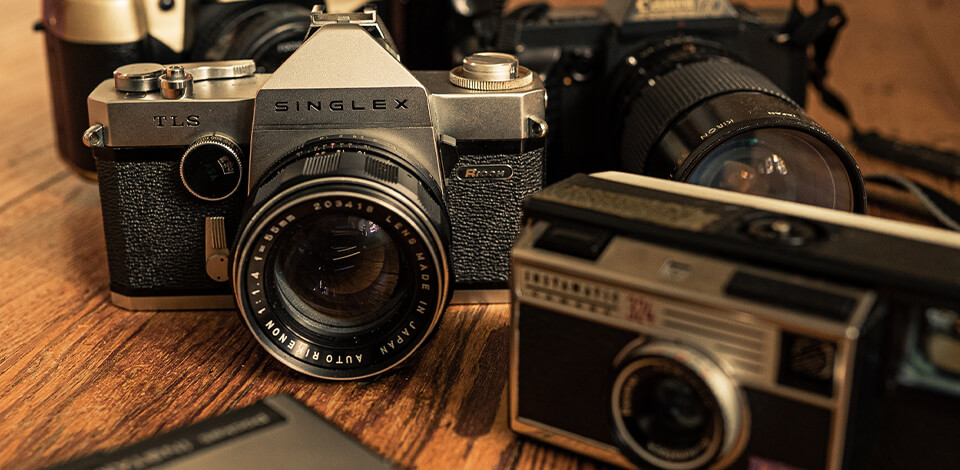
I got excited to find the best vintage cameras when I stumbled upon an old film model at a flea market a few years ago. There is something special in putting in the film, adjusting settings manually, and waiting for the pictures to develop.
To my mind, all these processes establish a special connection between a photographer and the art of capturing moments.
Vintage cameras may not offer the same ease of use as modern digital ones.
In this overview, I've described reasonably priced vintage cameras and hard-to-find vintage cameras for photographers who crave classic retro style.
Amazon. Most cameras here are brand new, but you can also discover pre-owned cameras from a trusted seller.
eBay. There's a wide range of vintage cameras up for grabs, and you can also put your cameras up for sale.
Etsy. The platform often features unique shops that sell cameras, vintage lenses, and accessories tailored to specific interests.
KEH Camera. It is famous for its top-notch secondhand equipment, especially when it comes to good vintage cameras.
Craigslist and Facebook Marketplace. These are local platforms where you can come across vintage cameras. Just be careful and double-check whether they're the real deal not forgery.
Local camera stores or shops. Check out if they have any vintage gear, or you can swing by local events that specifically feature vintage items, like trade shows or flea markets.
3. Examine the camera's condition. Make sure common problem areas are in good working order. These are the light meter, shutter, film advance, viewfinder, light seals (though imperfect ones may result in interesting images), controls, and the lens.
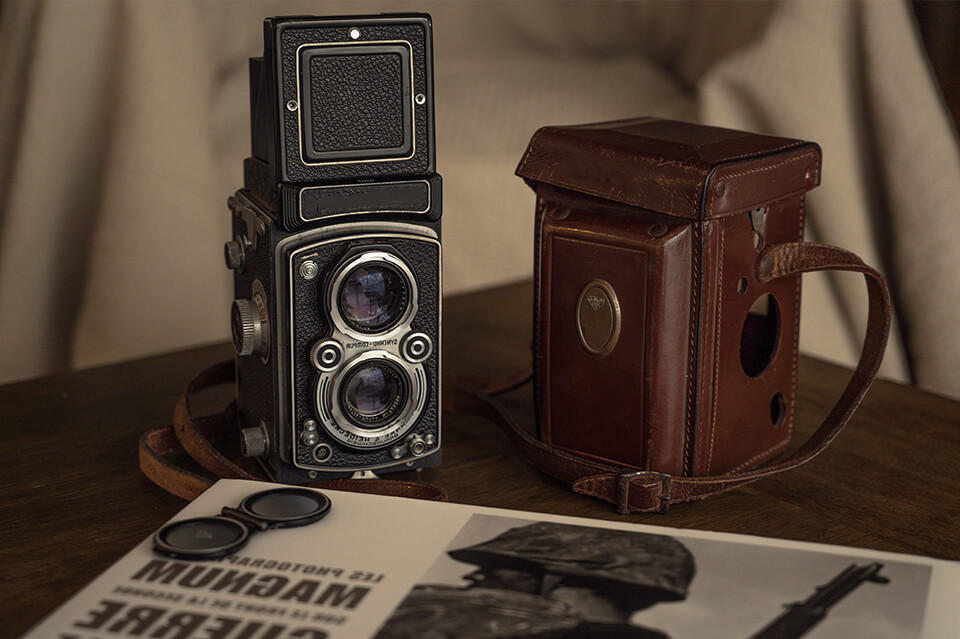
4. Pay attention to accessories. Think about the availability of add-ons such as lenses, viewfinders, or flash units. Also, make sure the type of film for the camera is still easy to find.
5. Check out the return policy and warranty. If you can, purchase from sellers who provide return options or warranties. This way, you have a backup plan if the camera doesn't work as promised.
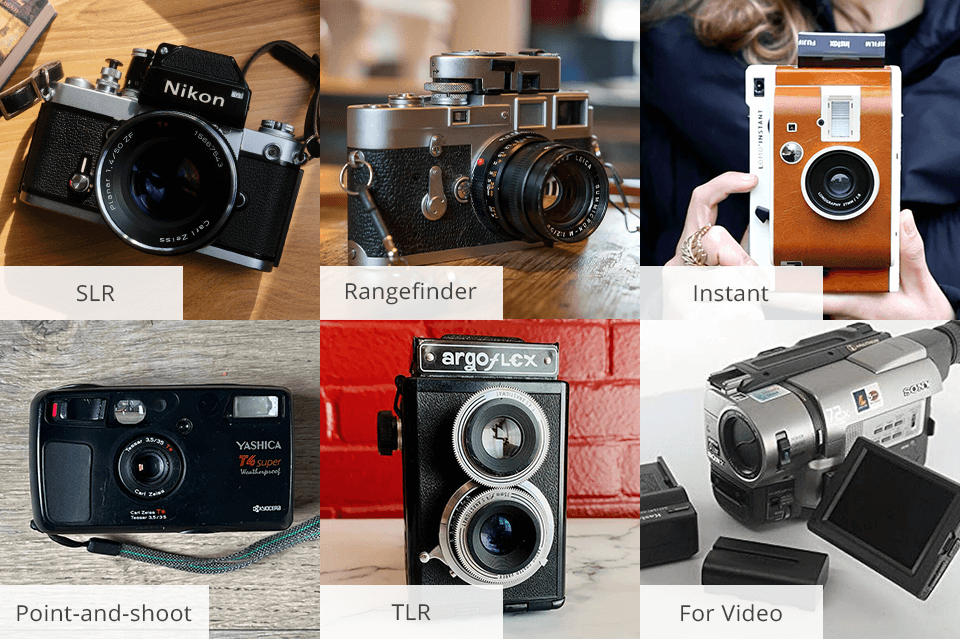
SLR. Such cameras brag about their through-the-lens viewing system. It's like looking through a prism or mirror and getting a sneak peek of what your final photo will look like. These cameras have slightly more advanced features than regular point-and-shoot devices, but they're still beginner-friendly.
Rangefinder. They are called "rangefinders" because of the way you focus with them. You need to turn a ring to line up two pictures of your subject until they're sharp. Travel photographers love rangefinder cameras because they're small, have a wider lens, and a silent shutter. They may be a bit trickier to handle, but the good news is they use the same 35mm film as those fancier SLR cameras.
Instant. If you get a vintage camera of this type, you can take a shot, and just a little while later, you're holding that picture in your hand. That's the charm of instant cameras. Back in the '60s and '70s, instant cameras wowed everyone with their special feature – a self-developing film.
Point-and-shoot. These cameras are compact, so you can take them anywhere. And true to their name, you don't need to be a pro photographer to work one. Just point it, make sure your subject is sharp, and press that shutter button.
TLR. TLR cameras have two lenses on the front. It's a bit like a 35mm rangefinder, where one lens helps you frame and compose the shot, while the other one actually takes an image.
For video. Such vintage camcorders are small and easy to carry. Thus, you can rely on them for filming in different places. However, the most interesting part is that they give your videos a distinct handheld style, a bit different from the smoother, polished footage produced by modern digital cameras. If you're aiming for a specific vibe when looking for the best old cameras to buy, opt for classic camcorders.
• Check out main differences between mirrorless and DSLR.
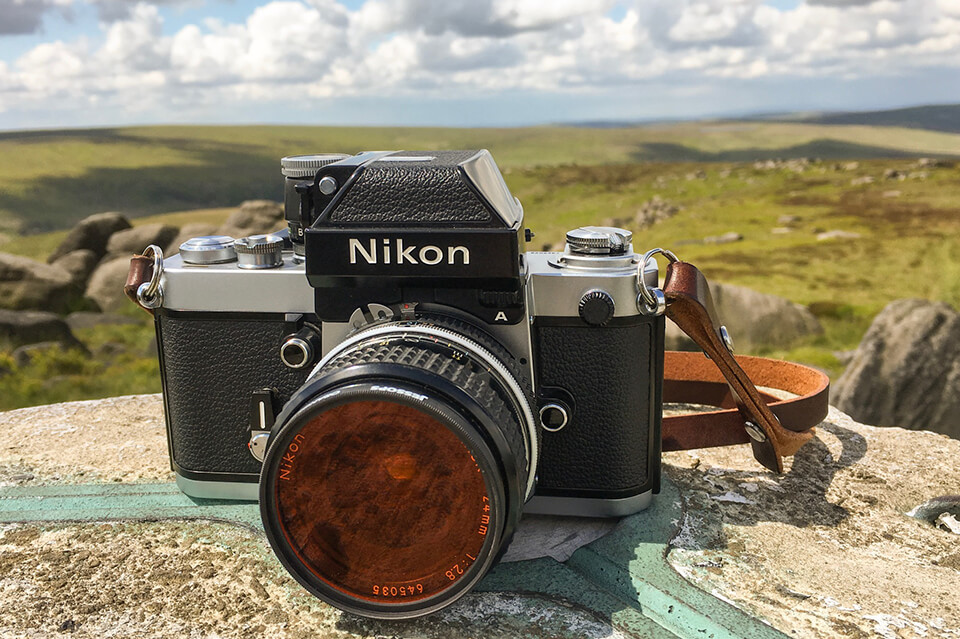
One of the main characteristics that sets the F2 apart from other early 35mm SLR cameras is its all-mechanical design, which makes it stand out even in the era of modern DSLR cameras.
This means that it can operate under extremely harsh conditions.
Plus, it's a very fast vintage camera with no noticeable delay when you press the shutter release.
This Nikon camera has the ability to utilize Photomic metering.
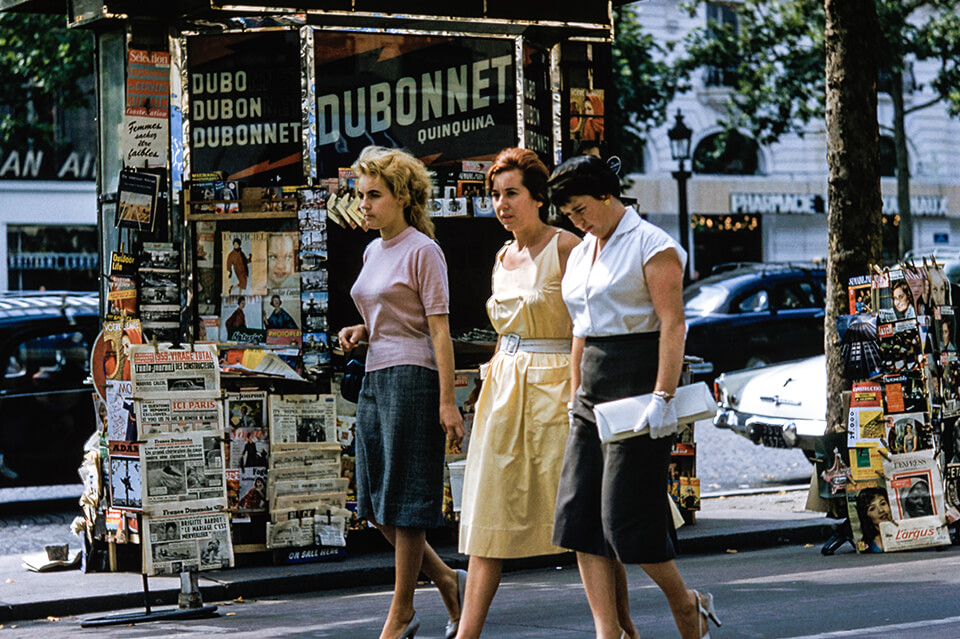
Photo by Nikon F2
This metering system can be read and set using the finder's through-the-lens metering mechanism, which allows you to read the meter with the camera above, below, or to the side of you.
This is an important for those who don't want to have to use a tripod, as this ensures that you have full access to the camera's controls without sacrificing sighting ability or visibility.
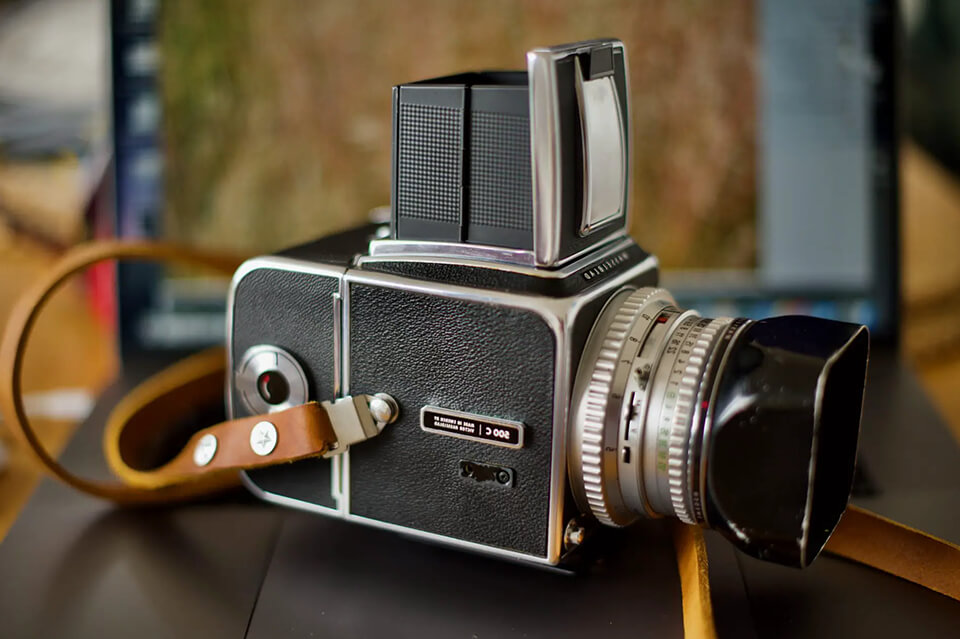
What I find the most spectacular about this old camera is its flexibility.
You can use different lenses, film backs, and finders like waist level and eye level prisms.
It's 100% mechanical, so you don't have to worry about expensive electronics failing on you.
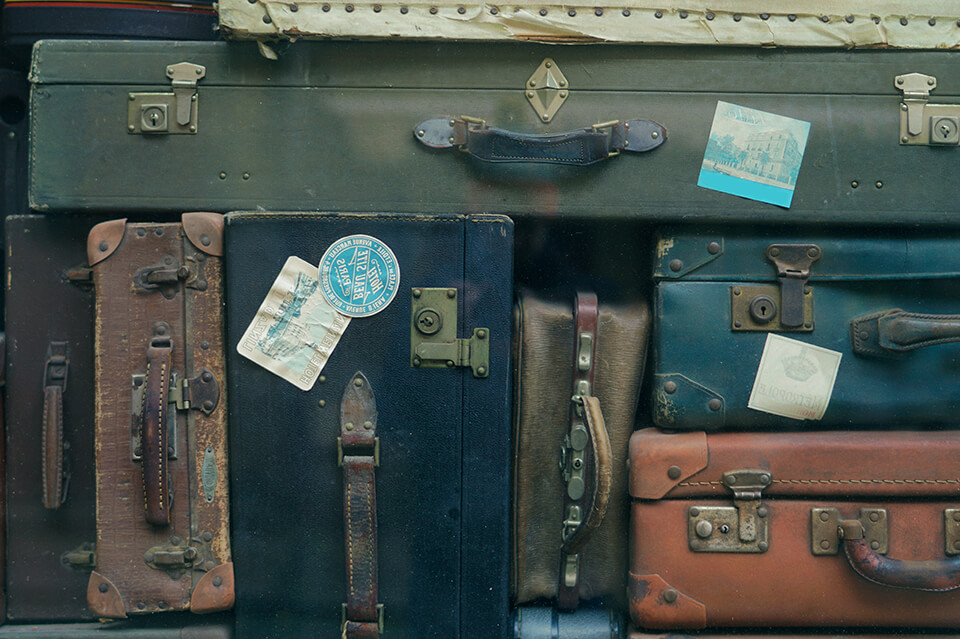
Photo by Hasselblad 500C/M
What else many photographers like about this camera is the fantastic Carl Zeiss lenses that come with this camera.
These lenses are renowned for their exceptional quality and are considered some of the best optics in the world.
This vintage camera doesn't come cheap (its price is about $4,000). It's pricier than most comparable SLRs or DSLRs, and it requires a significant upfront investment.
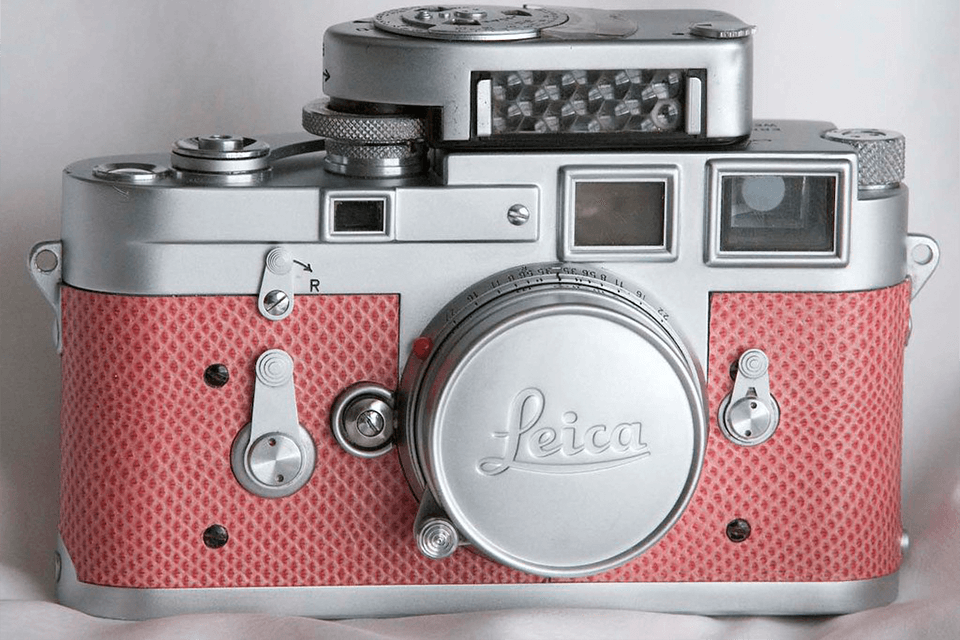
The Leica M3 is an iconic rangefinder camera that differs because of its purely mechanical nature. Unlike modern camera for photography, it doesn't rely on electronic or digital controls.
Another advantage is its versatility when it comes to lenses.
While it can be used with various lenses, the Leica Summicron 50/2 V and Zeiss ZM 50/1.5 Sonnar are my favorite choices.
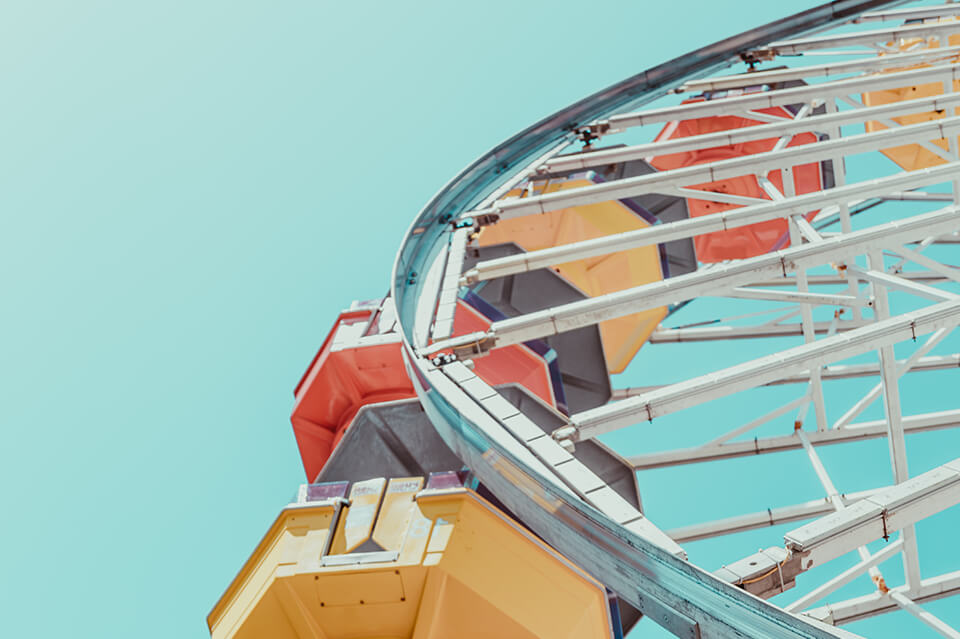
Photo by Leica M3
The M3 is also portable, making it perfect for photographers on the go.
It's easy to operate and doesn't have any complicated features, making it suitable for beginners as well.
This vintage Leica camera is made of high-quality materials and has a clear and bright viewfinder, allowing for precise composition.
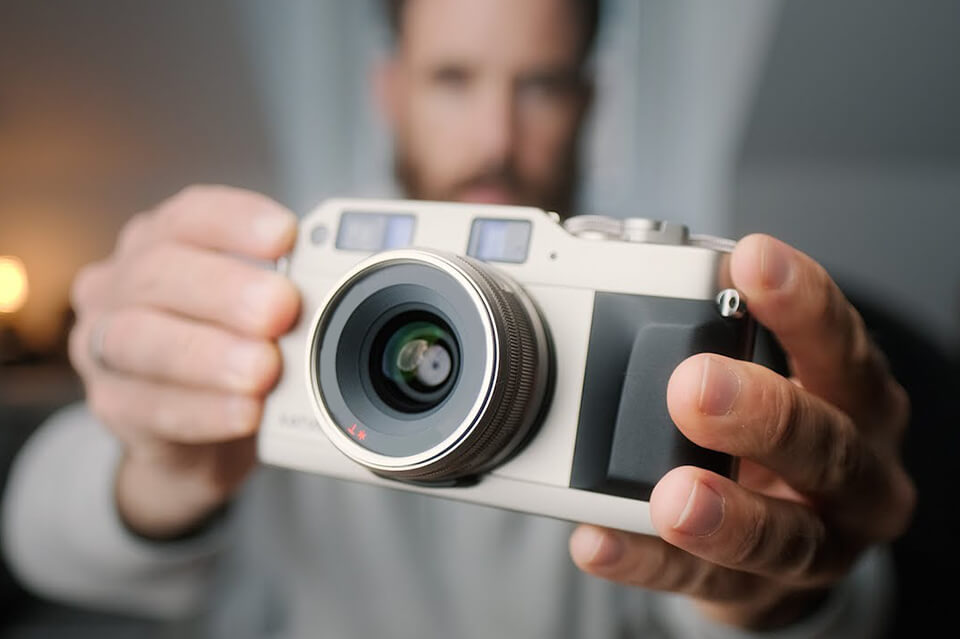
The Contax G1 has got that classic design that looks absolutely stunning in your hands.
Plus, it comes with some nifty automatic features like autofocus, automatic film advance and rewind, and TTL flash metering.
These features really help simplify your photography sessions and allow you to focus on your creative vision.
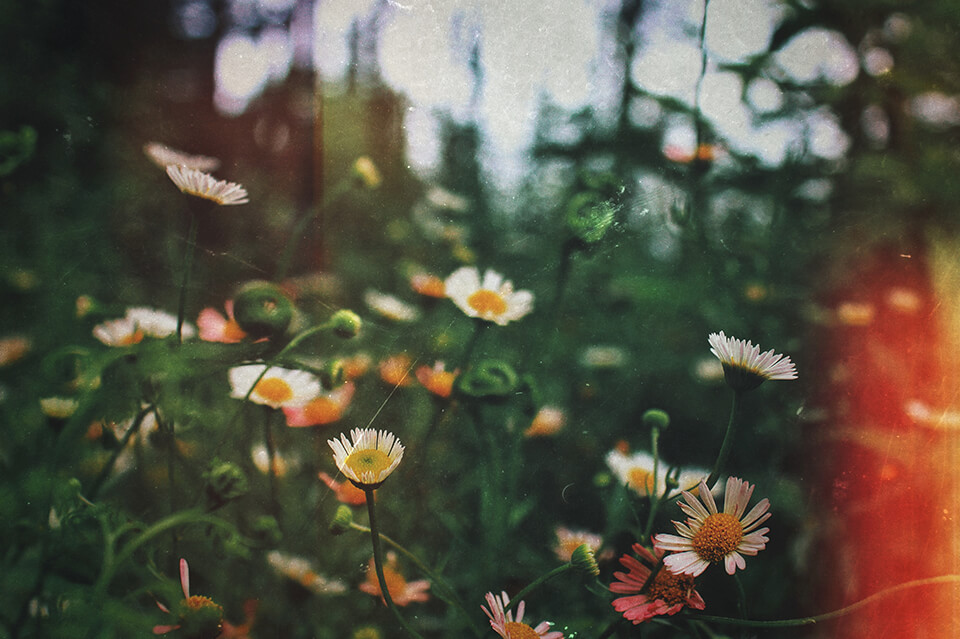
Photo by Contax G1
One of the standout features of the G1 is its versatility with a variety of lenses.
You can use different lenses with this old camera, which gives you the freedom to experiment and achieve different looks in your photographs.
It's a compact camera that you can easily carry around, making it convenient for various shooting situations.
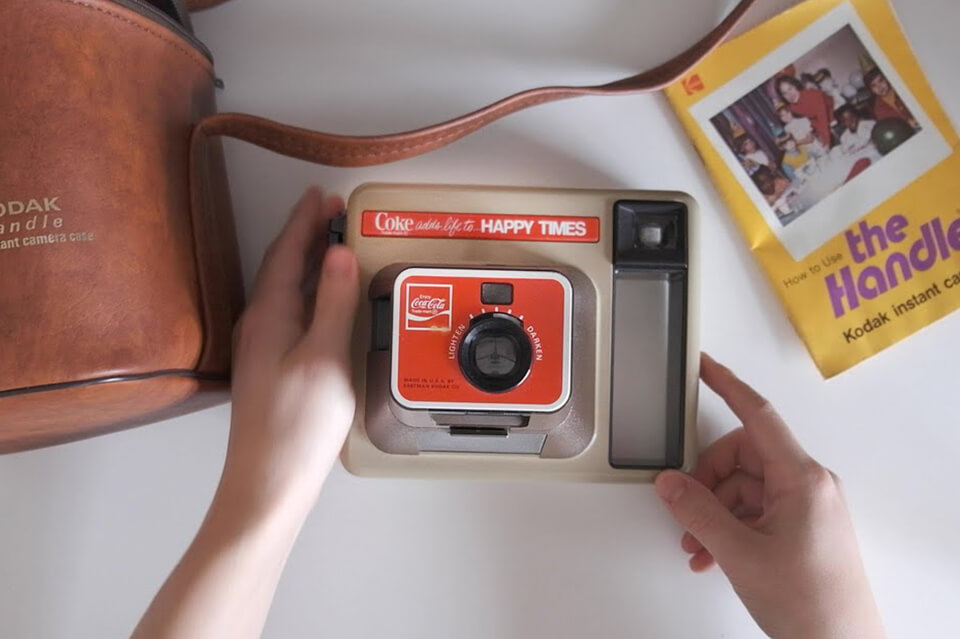
One of the standout features of the Kodak Happy Times is its simplicity and reliability.
It uses a manual film advancing system, so no batteries are required.
But what impresses me a lot is its vintage design. It's unique, and such a camera can be a great addition to any photographer's collection.
The lens, while a simple meniscus type, is surprisingly capable of capturing incredibly sharp retro-style photos, despite the usual light fall-off and distortions associated with such lenses.
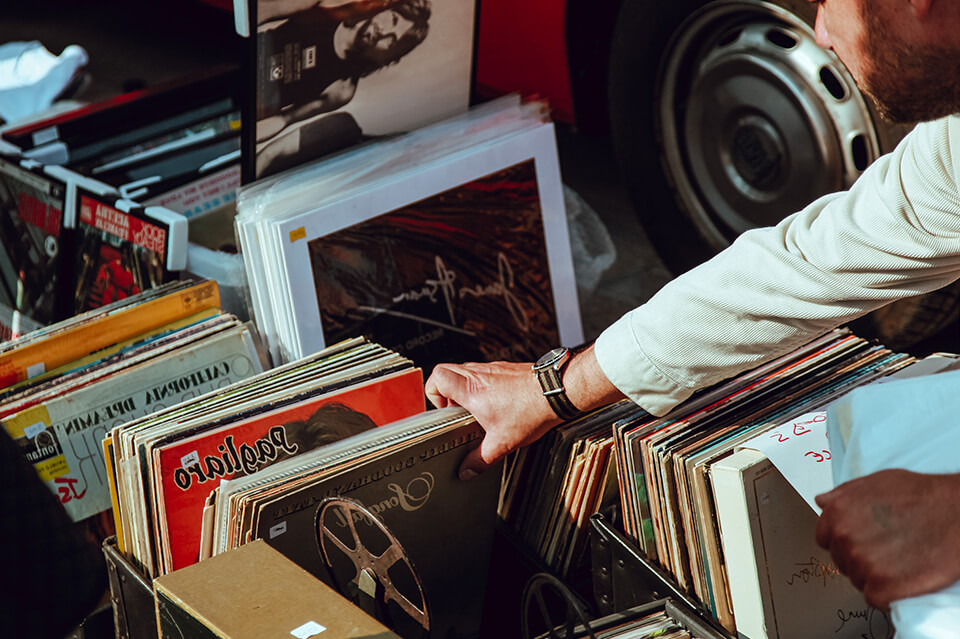
Photo by Kodak Happy Times
One interesting feature is the little window on the back of the camera.
It allows you to write messages or shoot data on the special Kodak Autographic film. You simply move the door down with a stylus and record your information on the film backing paper.
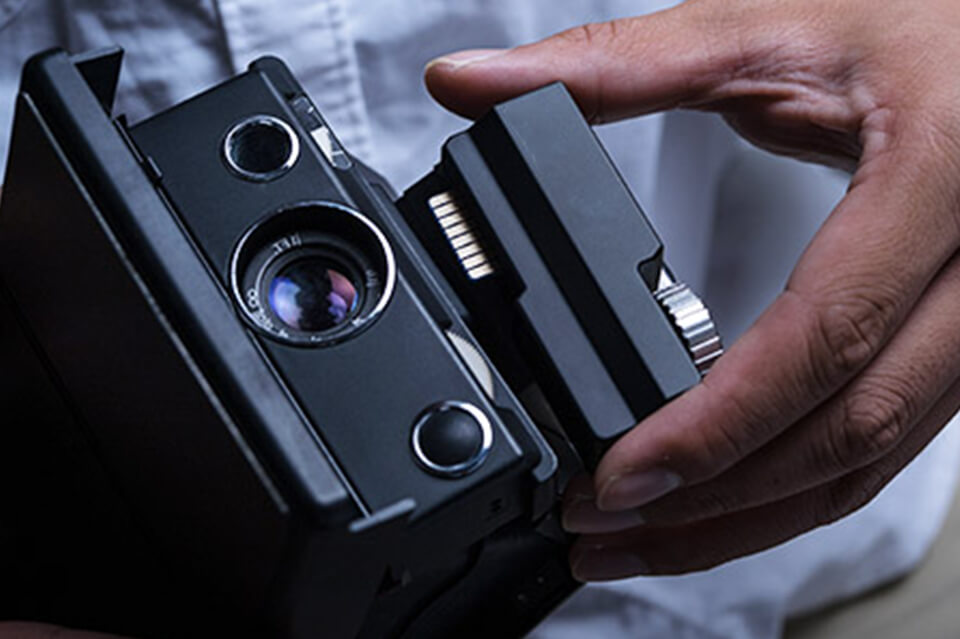
What sets the Mint SLR670-X model apart is the Time Machine add-on.
This little module allows for manual shutter speed control, giving you more control over your shots.
Plus, you can use 600 film with this vintage camera, which is a huge bonus in terms of versatility.
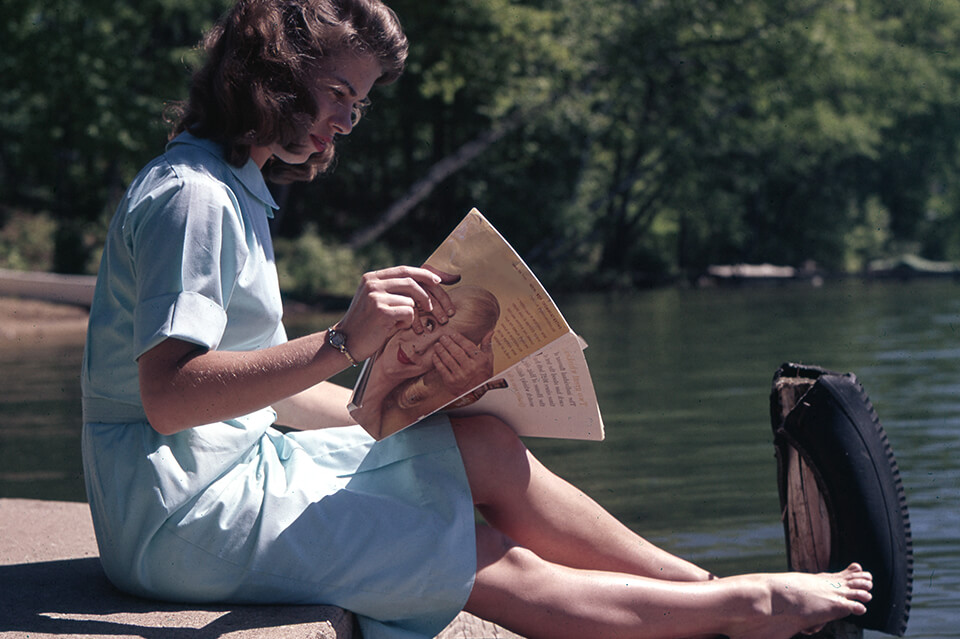
Photo by Mint SLR670-X
One cool thing about the SLR670-X is that it can connect to an external flash through a 2.5mm audio jack.
This opens up more possibilities for creative lighting options.
And speaking of power, this camera is powered by a rechargeable USB-C battery that can last up to 30 packs of instant film or a whole year on standby.
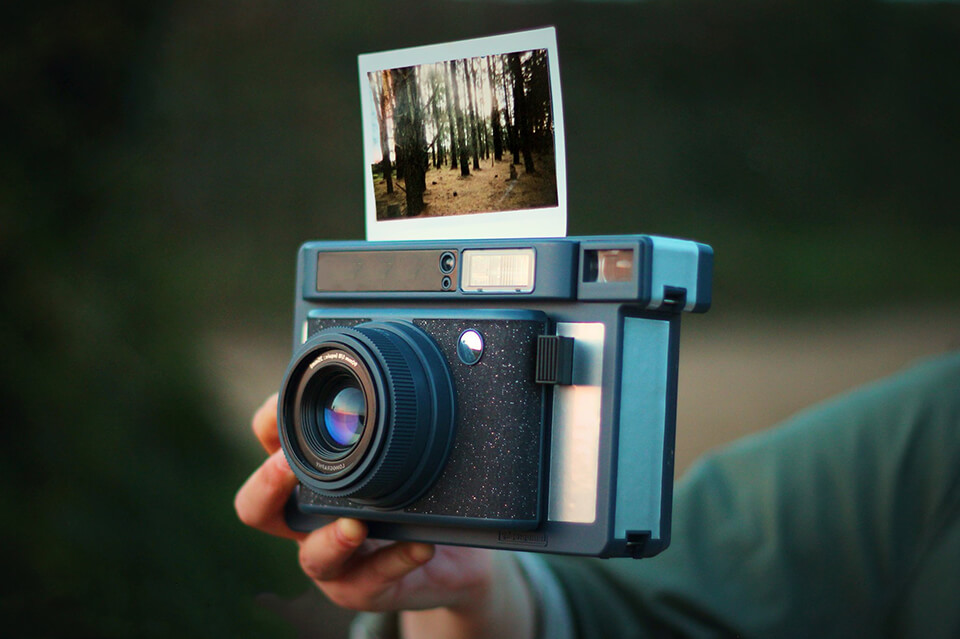
Lomography Lomo'Instant is suitable for photographers who prefer automatic shooting.
I like the possibility of using additional lens converters like fisheye and closeup, which opens up plenty of possibilities for exploration.
I was also impressed by the optical viewfinder, which is easy to see through and has a helpful dotted box for framing your shots.
There's even a built-in self-portrait mirror and a shutter release connection for more precise photos.
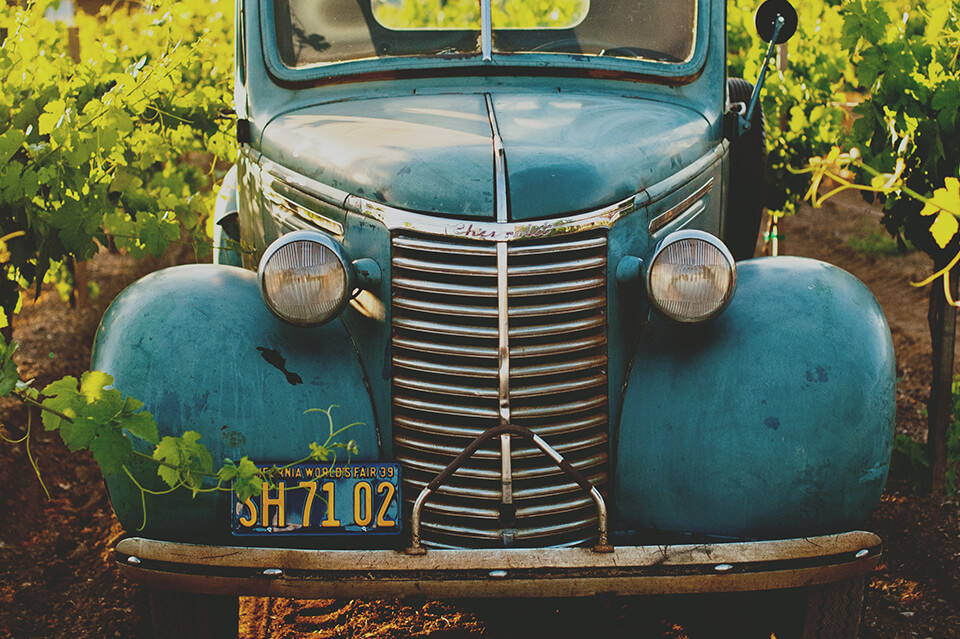
Photo by Lomography Lomo'Instant
The vintage camera also has a zone focusing system, making capturing blurry images or close-ups easier without losing any detail.
Need to mention, it might take a few shots to get used to it, and you might even encounter light leaks or distortion in your photos.
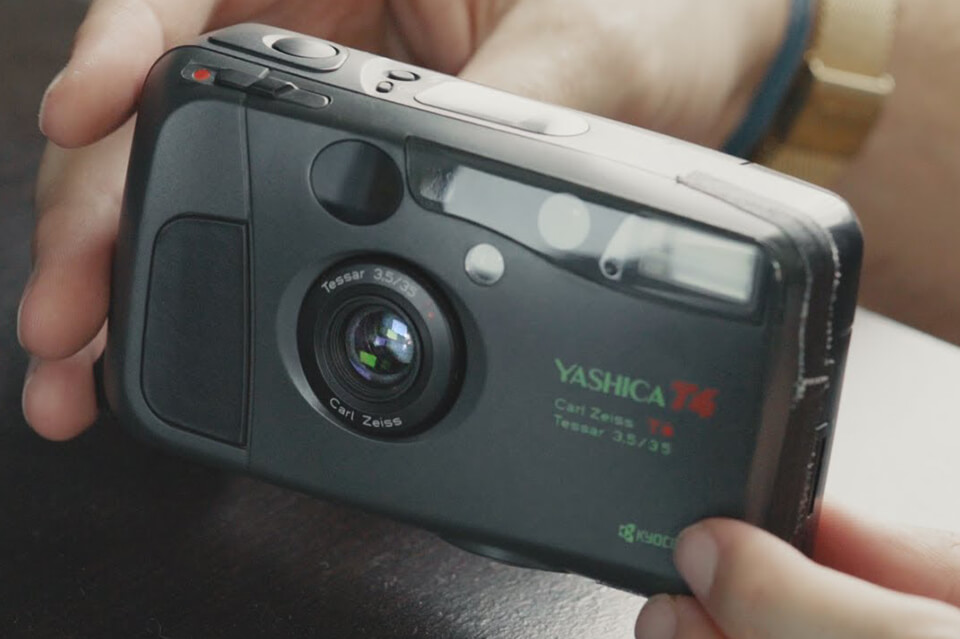
One of the main advantages of this compact camera is its autofocus system.
It uses an infrared sensor to calculate the distance from your subject to the camera and then positions the lens accordingly.
This system is quite effective in the most common shooting situations, but it also allows you to take amazing photographs when you are in tricky lighting conditions.
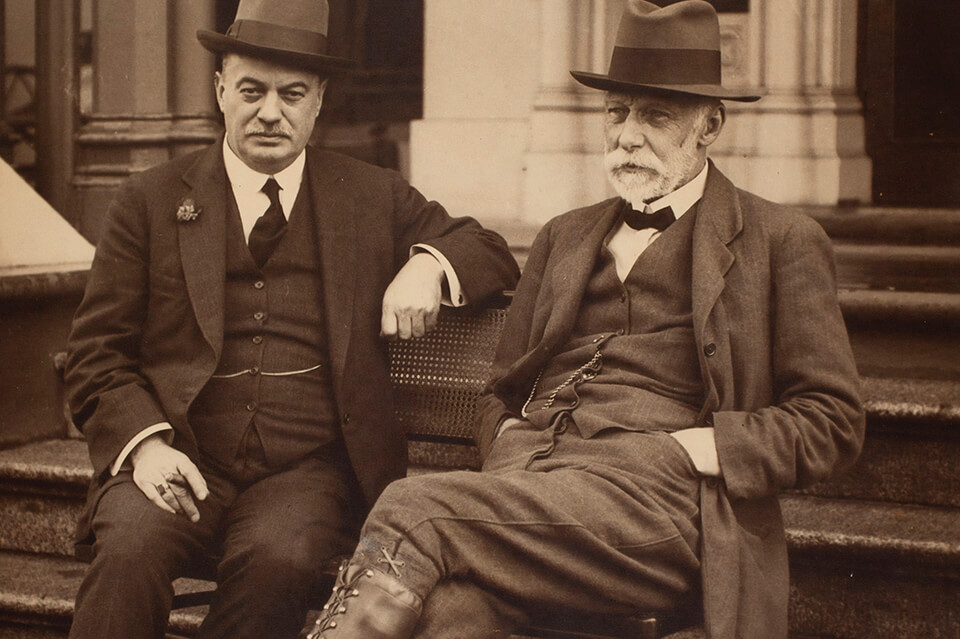
Photo by Yashica T4
In addition, the camera has a decent viewfinder with blinking LED lights that provide different information snippets to the user.
The green LED indicates focus, and the red one signals if the flash is about to fire.
It's an automatic camera for amateur photographers and it is easy to use, but still, the pictures you can take with it look good.
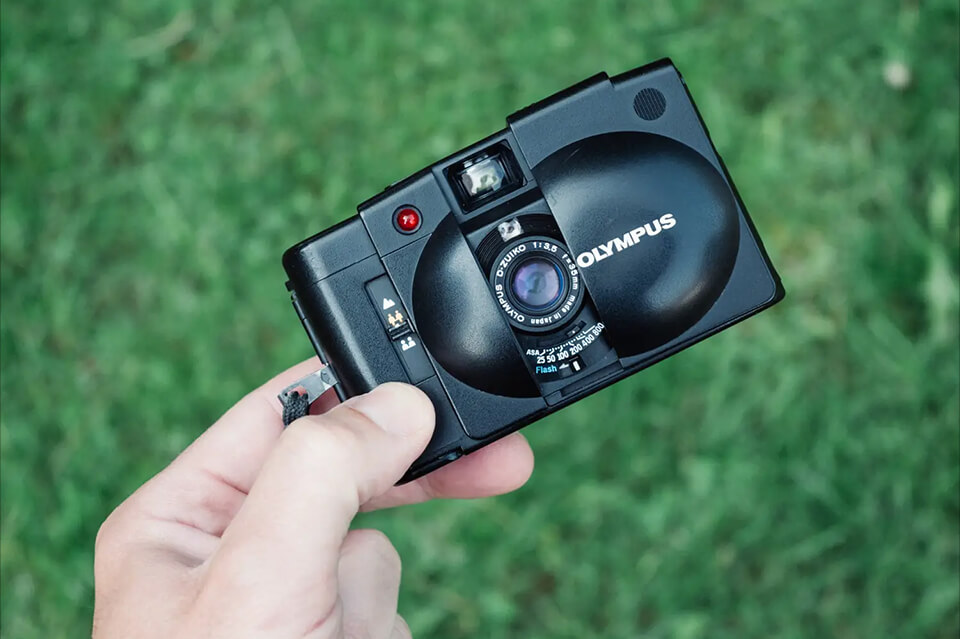
The Olympus XA 2 is perfect for street photography and capturing candid moments.
The XA 2 has a leaf shutter, which is much quieter than a focal-plane shutter. This means you can discreetly snap photos without drawing too much attention.
With the fixed-focus lens, it's easy to compose your shots, and the focusing range is quite generous, making it suitable for various situations.
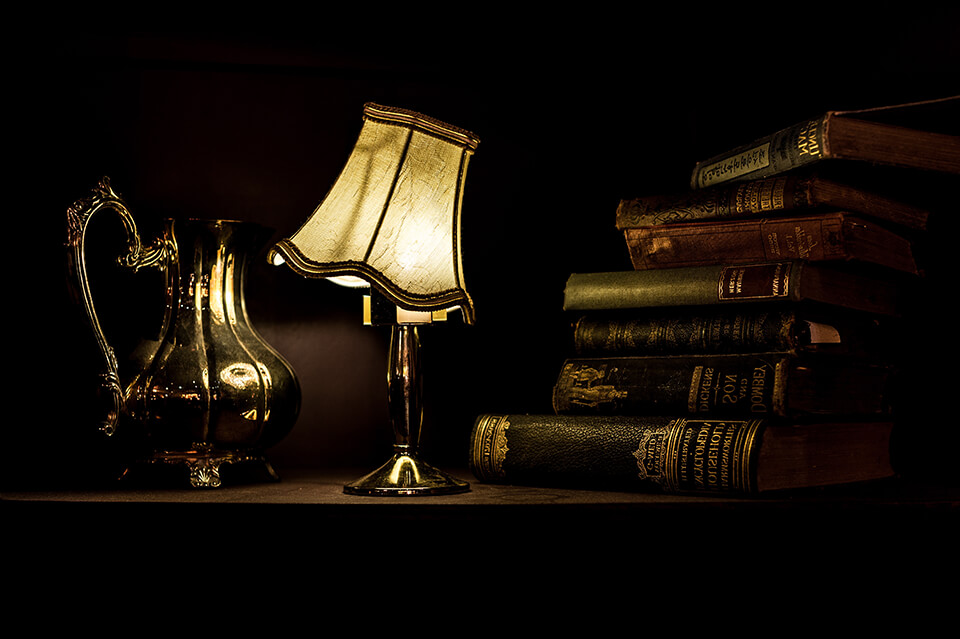
Photo by Olympus XA 2
Talking about the problems, I need to mention, that the meter on this old point-and-shoot film camera isn't the most accurate.
It tends to under or overexpose by more than one stop, even when set within the manufacturer's specifications.
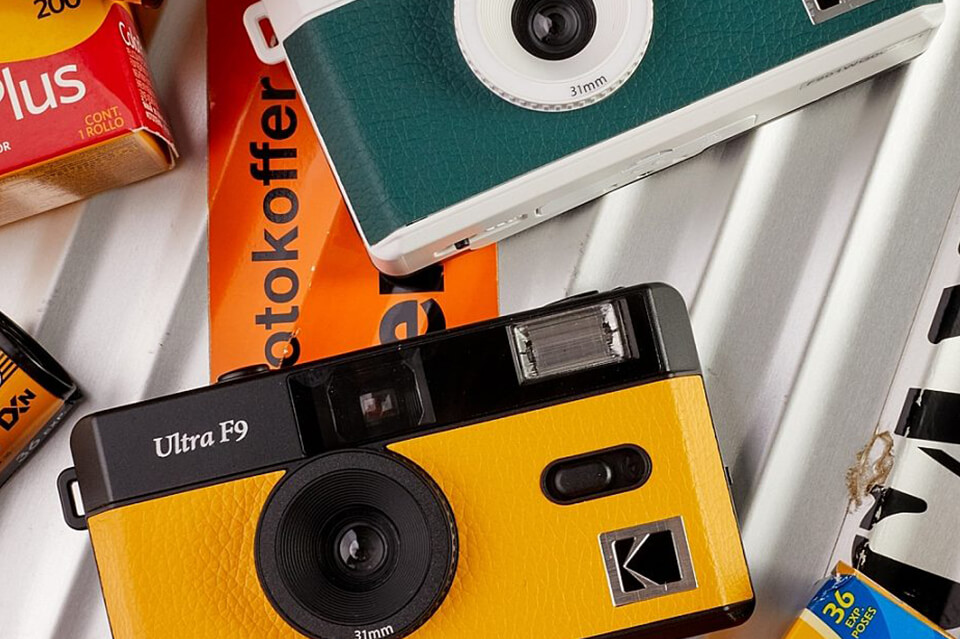
The Kodak ULTRA F9 offers an affordable and user-friendly experience for those who want to capture memories on film.
It's a reusable analog camera that uses widely available 35mm film, for both color and black-and-white photos.
The compact design makes it easy to bring with you wherever you go, perfect for capturing spontaneous moments.
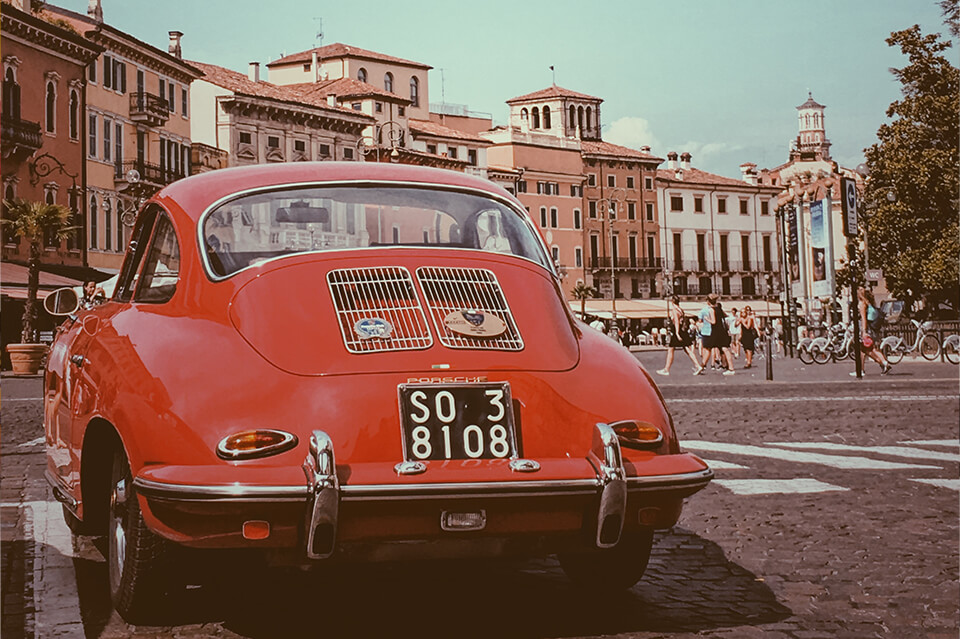
Photo by Kodak ULTRA F9
One of the standout features of this vintage camera is its fixed focus lens, which simplifies the shooting process, especially for beginner in film photography.
You won't have to worry about adjusting the focus, allowing you to focus on the composition instead.
Additionally, it has a manual film winding and rewinding feature, giving it that authentic analog feel.
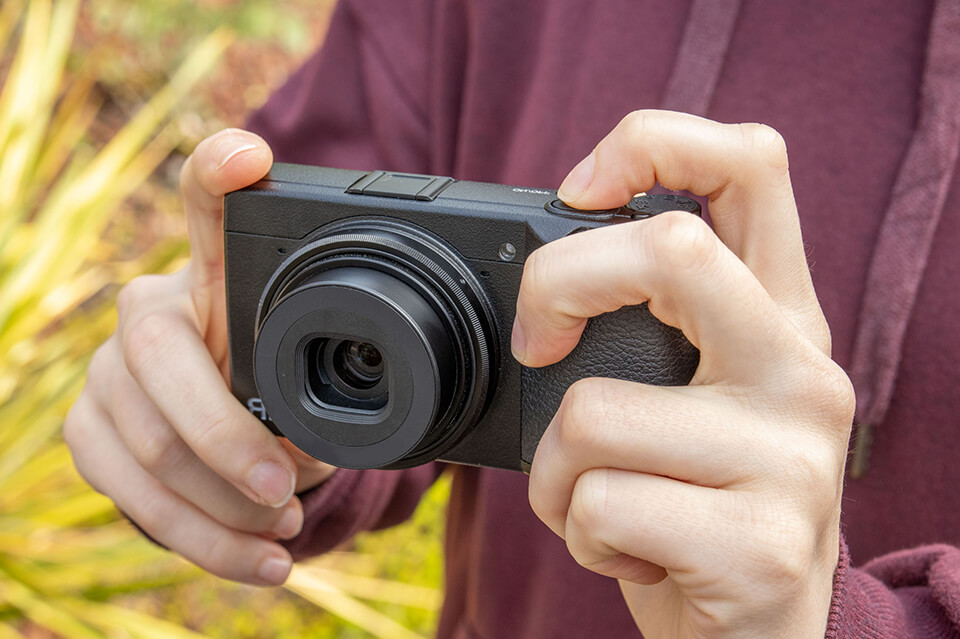
The Ricoh GR Digital is a compact vintage camera with a fixed 28mm lens, which may not sound like much, but let me tell you, it delivers quality results like no other digital camera can.
The controls are perfectly placed under your thumb and index finger, giving you easy access to all the important settings.
Plus, the startup time is only 1 second, and the shutter lag is just 0.2 seconds, so you never miss a moment.
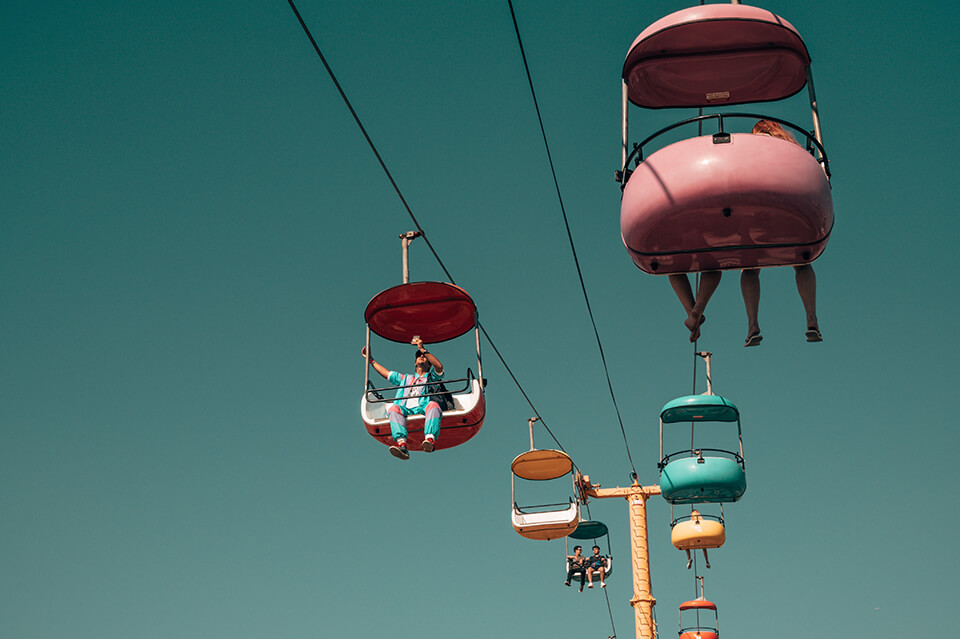
Photo by Ricoh GR Digital
With its 16-megapixel sensor, you can capture high-resolution prints up to 13x19 inches. That's pretty impressive for such a small camera.
It's perfect for advanced amateurs and professional photographers who want a lightweight, portable, and powerful companion.
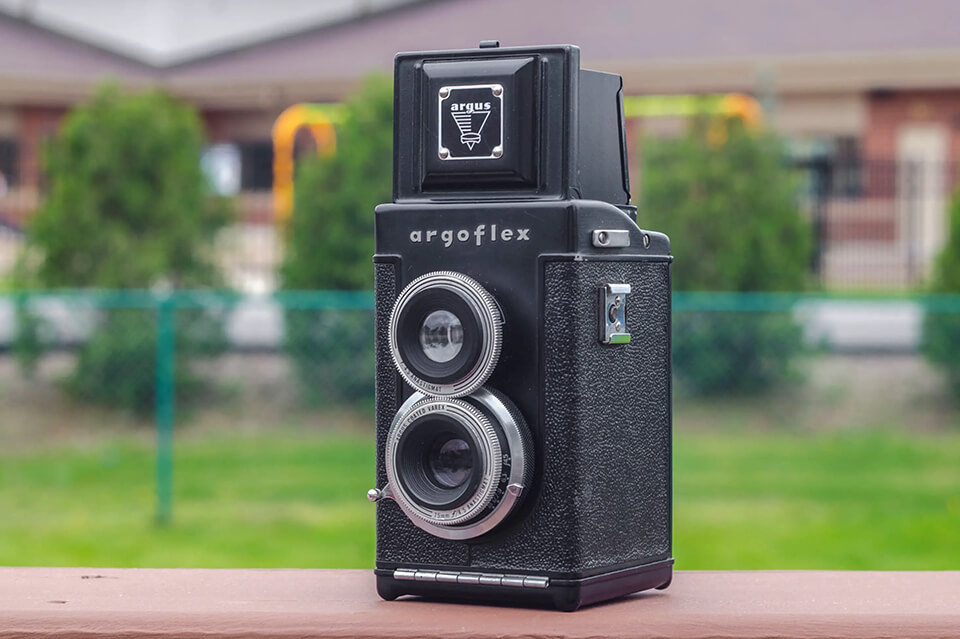
The Argus Argoflex is a Twin Lens Reflex (TLR) camera that captures beautiful 6x6 square pictures.
Despite its size and weight, this cheap camera is surprisingly easy to operate.
Its large viewfinder and comfortable shutter release make composing your shots a breeze.
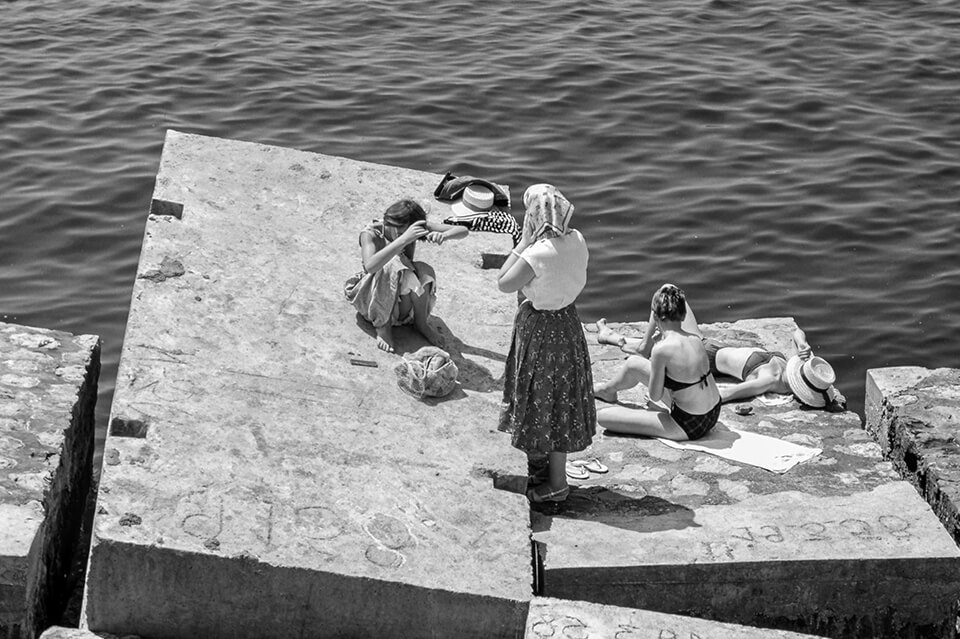
Photo by Argus Argoflex
Compared to other true TLR cameras of its time, it's smaller and lighter.
So, if you're looking for a more traditional film photography experience, this old camera might just be perfect for you.
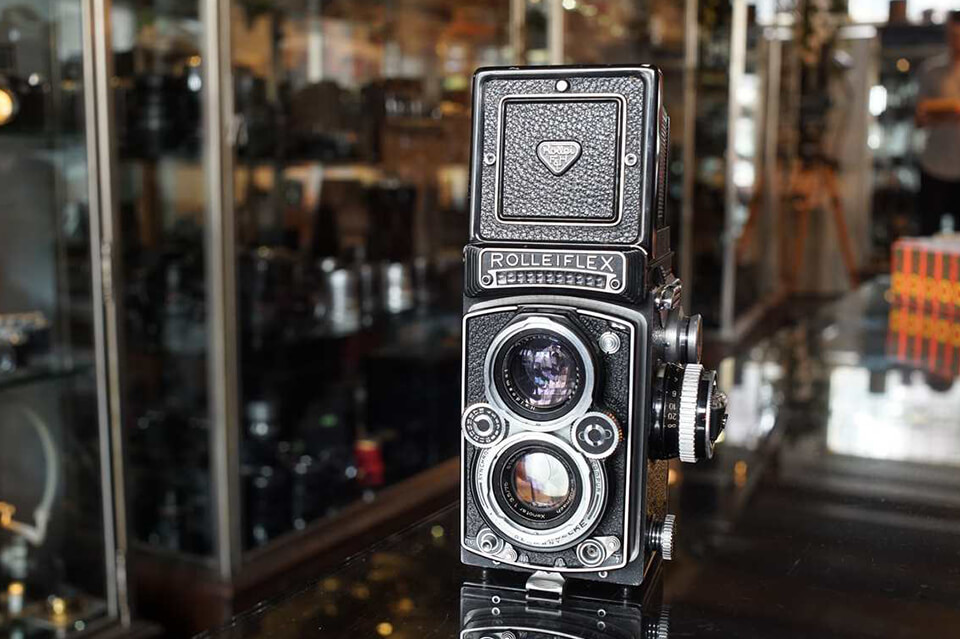
The Rollei Rolleiflex 3.5E captures stunning 6x6 images on 120 film.
It even comes with a built-in light meter, allowing you to take high-quality portraits, landscapes, and urban pictures.
One great feature of these vintage cameras is the ability to use Rolleinar close-up filters, which magnify the image and correct parallax error at close distances. This makes them perfect for close-up work in the studio or on location.
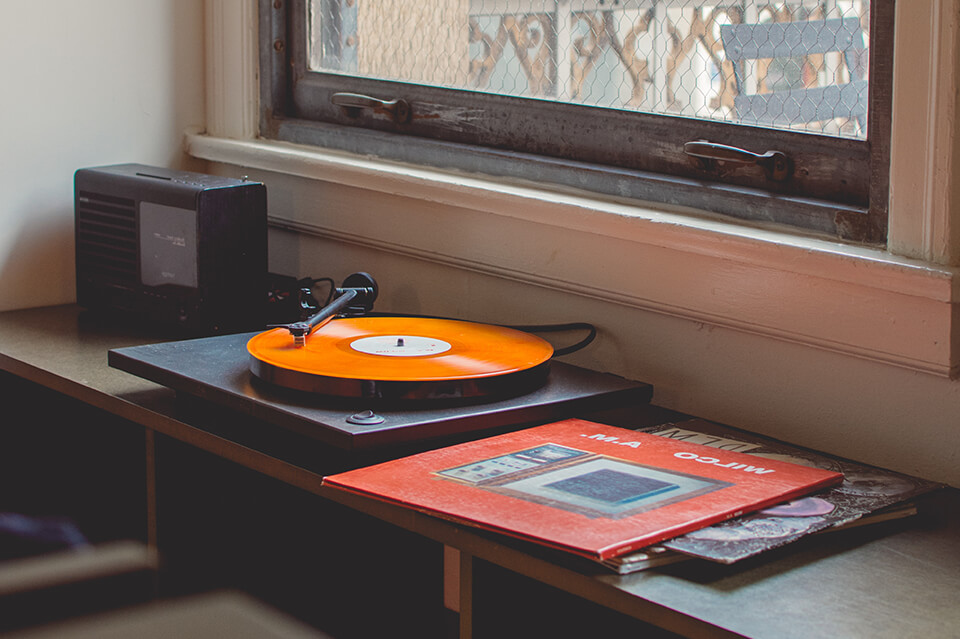
Photo by Rollei Rolleiflex 3.5E
The Rolleiflex is incredibly easy to use, with no steep learning curve.
However, there are a few unique features that might require some practice to master.
The waist-level viewfinder, for instance, allows you to compose shots from a different perspective. It can be a bit tricky to get used to at first, but it encourages you to take your time and carefully compose each shot.
Read more about the best neutral density filters to shoot long-exposure photos.
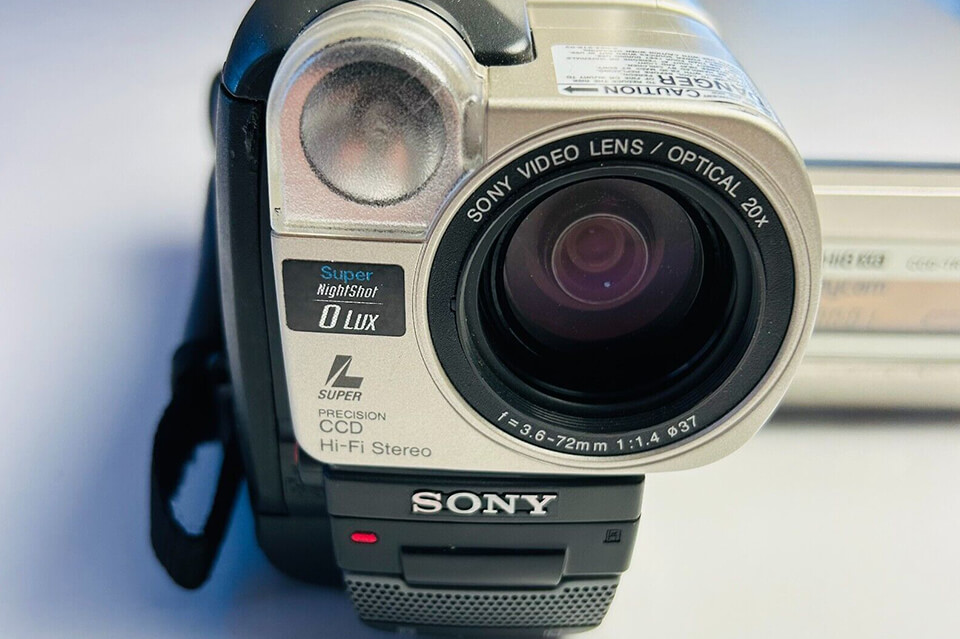
The Sony Handycam CCD-TRV87 features a 2.5-inch LCD viewscreen, which is great for framing your shots.
The auto exposure modes on this old camera are also pretty handy.
They adjust the shutter speed to control image sharpness and depth of field, giving you some control over your final image.
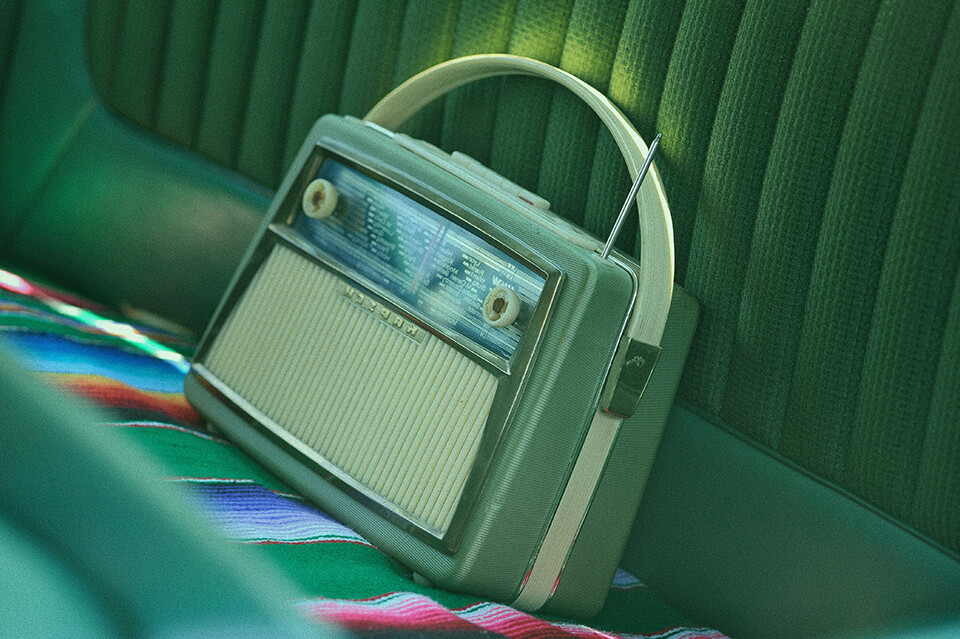
Photo by Sony Handycam CCD-TRV87
The Sony Handycam CCD-TRV87 is also lightweight, making it easy to carry around for those long filming sessions.
It's got a zoom lens, auto focus, and even an automatic iris and color balance.
These features make it a breeze to use, especially for those who are feeling a bit nostalgic and want to capture that vintage look and feel in their videos.
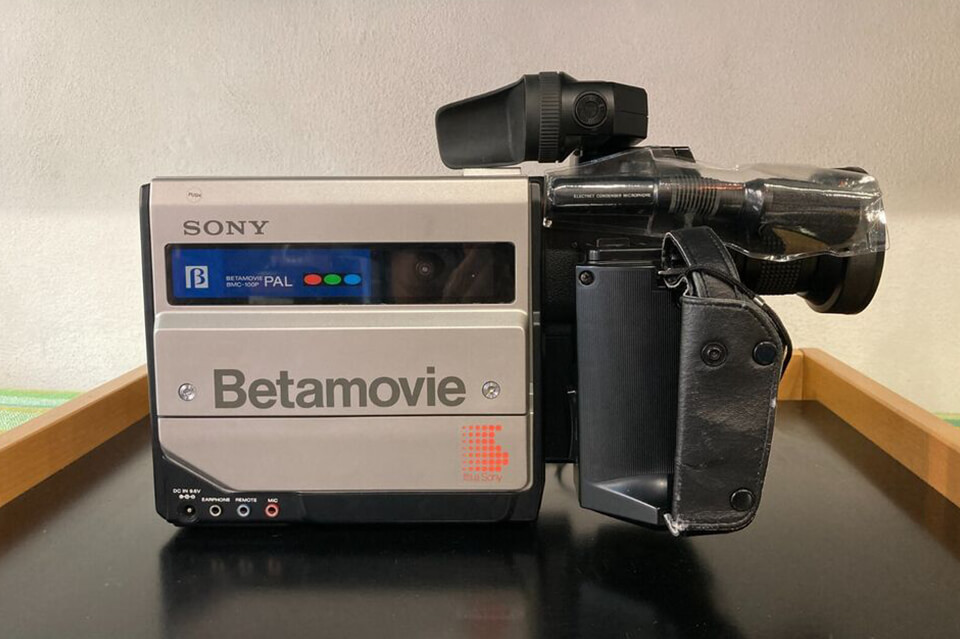
The Sony Betamovie BMC-100P was the first camcorder to combine a video camera and a portable VCR, making it accessible to the average Joe.
One standout feature is the built-in microphone. It's perfect for capturing audio, giving your home videos that extra touch of authenticity.
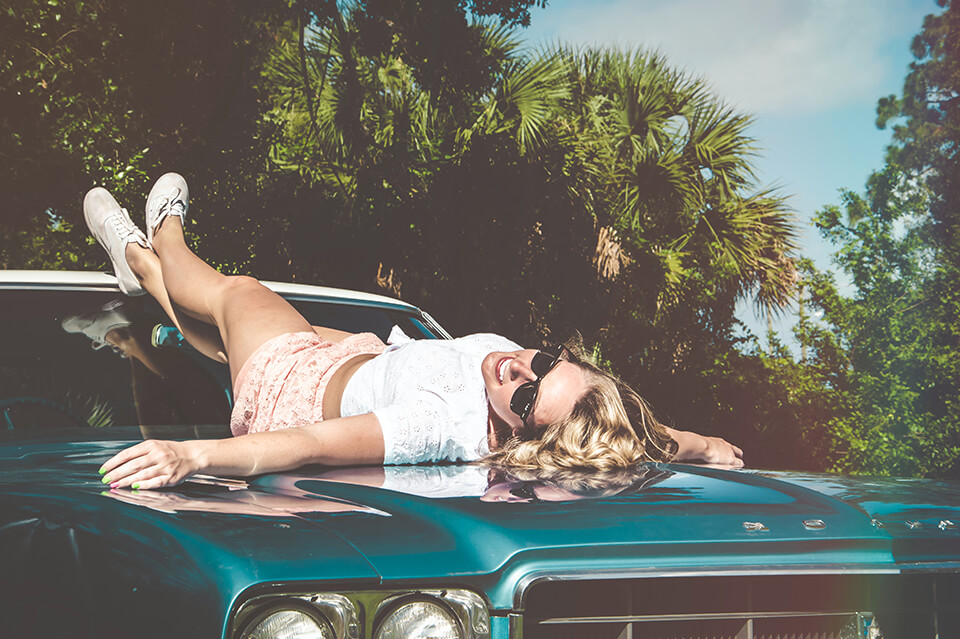
Photo by Sony Betamovie BMC-100P
Plus, the high-quality zoom lens guarantees crisp images, and the flash function is a savior in low-light conditions.
This camera's ability to capture intricate details is great for creating top-notch home movies.
If you're wondering what to do with old camera, consider getting into collecting rare models. Some vintage cameras are extremely hard to find, and collectors are ready to pay big bucks for them. For example, Oskar Barnack's Leica cost a whopping 15 million dollars and became the priciest vintage camera out there.
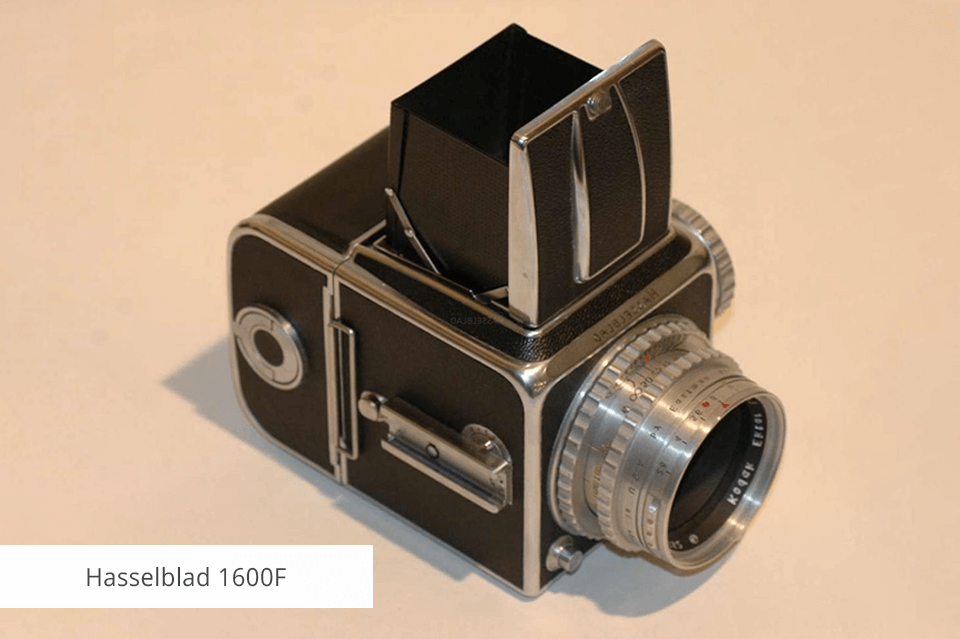
Back in 1948, Hasselblad introduced the 1600F model, marking the debut of the world's first SLR medium format camera. With its waist-level viewfinder, the camera gained traction in the photography scene. Nowadays, you can sell one on eBay for around $900.
Leica 0-Series. This is the very first Leica prototype. Back in 1923, only about 25 of these cameras were made, and now they're considered some of the most sought-after and valuable cameras globally. If you're on eBay today, you might find a prototype of this vintage camera going for around $2,000.
Hasselblad 500 Gold. This is a special edition of the Hasselblad 500CM decked out in 24-carat gold. They only made 10 such cameras, and you can sell one for a price starting at $5,000.
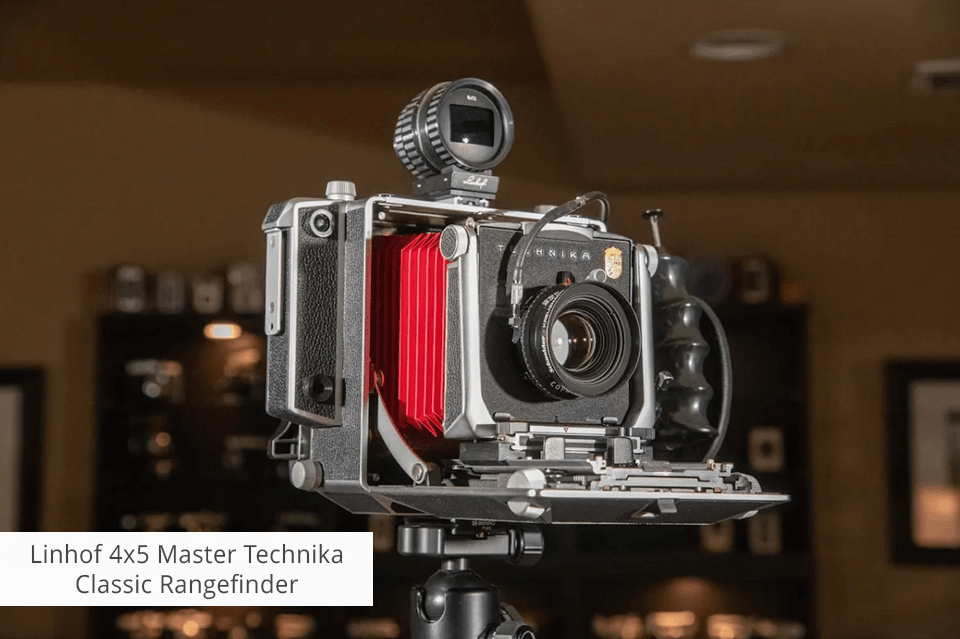
Linhof 4x5 Master Technika Classic Rangefinder. It is a unique vintage camera that runs about $2,500. What makes it cool is its mix of large format image quality, accurate design, portability, and versatile features. Film photographers love it because it gives them the benefits of a big camera while being convenient like a rangefinder system.
Hasselblad Lunar Surface SWC. It's a modified version of the Hasselblad SWC used for taking pictures on the moon during the Apollo missions. This camera is super rare and holds significant historical value. A few years back, it went for an eye-watering €45,000 at an auction.
Nikon F2H. This is a really hard-to-find type of the Nikon F2 made especially for the U.S. Navy. The fact that it's so rare and has a military backstory is what makes it worth a pretty penny.
A vintage camera is a film-based camera that relies on older optics and tech. These cameras bring a unique touch to all types of photography. Photographers are often on the hunt for the best vintage camera because such models are tough, easy to handle, and quality.
When deciding on a vintage camera, think about the kind of photography you're into. Consider whether you're more into capturing portraits, landscapes, or action shots. Take some time to check out which camera models and camera brands suit your specific needs best.
The condition of the camera should be your primary consideration. Aim for a camera that's been taken care of and has a clear viewfinder. It will be easy to focus and frame your shots with such a camera.
There are three main film options: 35mm, 120, and large format. Beginners should go for 35mm since it's budget-friendly and straightforward to use.